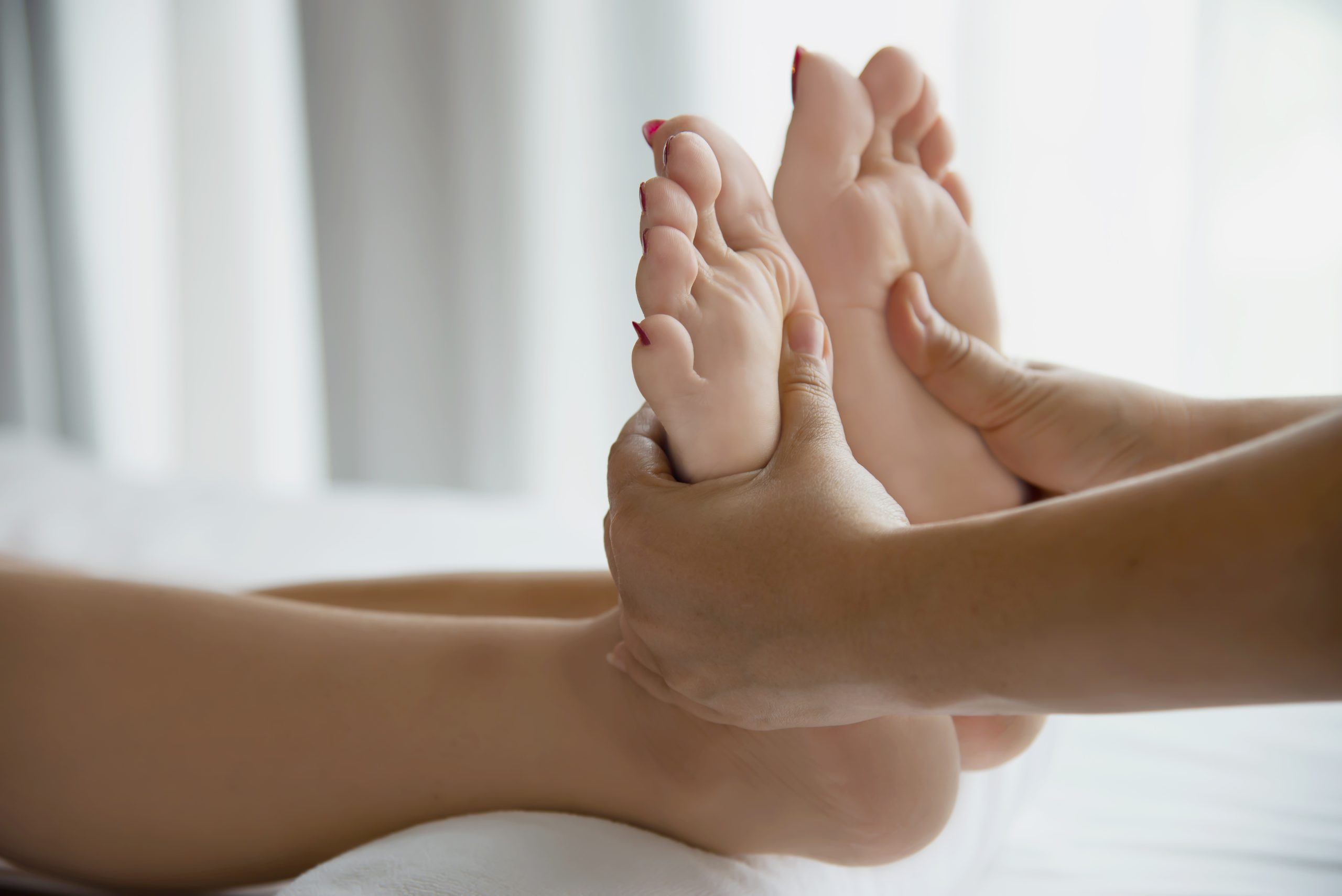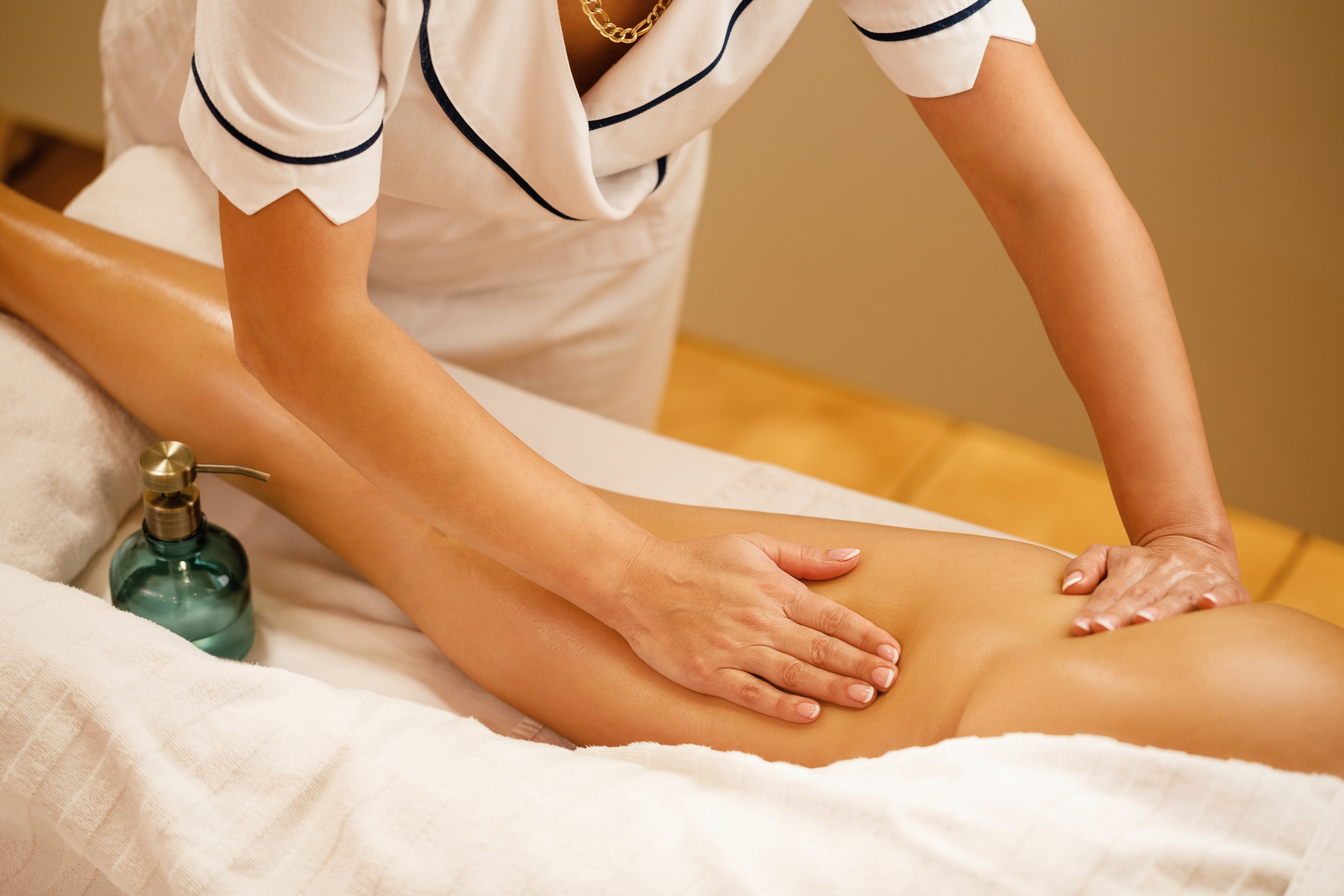Welcome to Devine Massage Spa

Reflexology is a holistic therapy that involves applying pressure to specific points on the feet, hands, or ears. These points, known as reflex points, are believed to correspond to different organs and systems within the body. By stimulating these points, reflexology aims to promote health and wellness, alleviate stress, and encourage the body’s natural healing processes. This ancient practice, with roots in traditional Chinese medicine and ancient Egyptian practices, has gained popularity in modern times for its potential to enhance overall well-being.

Reflexology is based on the principle that the body contains energy pathways that connect different organs and systems. When these pathways are blocked or imbalanced, it can lead to illness and discomfort. Reflexology seeks to restore balance and harmony by applying pressure to specific reflex points, thereby promoting the flow of energy throughout the body. This practice is often used as a complementary therapy to support conventional medical treatments.
Reflexology involves a series of techniques that apply varying degrees of pressure to reflex points on the feet, hands, or ears. Practitioners use their fingers, thumbs, and sometimes tools to stimulate these points. The pressure applied is generally firm but not painful, and the session typically lasts between 30 to 60 minutes.
The theory behind reflexology is that stimulating reflex points can trigger a response in the corresponding organ or system, promoting healing and balance. For example, applying pressure to the arch of the foot is believed to benefit the digestive system, while stimulating the tips of the toes may help relieve headaches.
Reflexology offers a range of potential benefits, many of which have been supported by anecdotal evidence and some scientific research. Here are some of the key benefits:
Reflexology is renowned for its ability to induce deep relaxation and relieve stress. By stimulating reflex points, the therapy helps shift the body from a state of stress to one of relaxation. This can lead to a reduction in stress-related symptoms, such as tension headaches, muscle tightness, and anxiety. The calming effect of reflexology can also improve mood and enhance overall well-being.
One of the most well-documented benefits of reflexology is its ability to improve circulation. By applying pressure to specific points, reflexology stimulates blood flow and oxygen delivery to tissues and vital organs. This enhanced circulation supports optimal function, promotes cell regeneration, and accelerates healing processes. Improved circulation also aids in the elimination of toxins, strengthening the immune system and enhancing overall health.
Reflexology can improve nerve function and communication throughout the body. As we age or experience health issues, our nerve endings can become less sensitive. Reflexology helps revitalize these nerve endings, enhancing overall body function. Improved nerve function can benefit conditions such as neuropathy, diabetes-associated issues, and nerve damage-related conditions like fibromyalgia.
Reflexology is believed to boost the immune system by stimulating the lymphatic system, which plays a crucial role in removing toxins and waste from the body. By targeting reflex points linked to the lymphatic system, reflexology enhances the body’s natural detoxification process, strengthening immune health. Regular reflexology sessions can benefit conditions like chronic fatigue syndrome, rheumatoid arthritis, or lupus, relieving inflammation and pain.
Reflexology is often used as a complementary therapy for pain management. By targeting specific reflex points, practitioners can address pain and ailments in associated body parts. For example, applying pressure to the toe reflex points can relieve headaches, while heel pressure can manage lower back pain and sciatica. Reflexology takes a holistic approach, restoring balance and promoting self-healing, making it effective for managing chronic pain and stress-induced ailments.
Reflexology positively impacts digestion and gut health by stimulating reflex points corresponding to organs in the digestive system. Pressure applied to these points regulates digestive processes, stimulates the gut, and restores balance. It helps relax digestive muscles and improve blood circulation, providing relief from common digestive issues like bloating and constipation.
Reflexology can improve sleep patterns by balancing the body’s sleep cycle. By regulating hormones like melatonin and cortisol, reflexology promotes regular sleep. It also reduces stress, aids insomnia, and improves sleep quality. Targeting points on the feet linked to the body’s stress response system calms the nervous system and induces relaxation, enhancing sleep.
Reflexology is practiced by certified reflexologists who have undergone training to understand the reflex points and how they correspond to the body’s organs and systems. Sessions are typically conducted in a calming environment, with the client seated or lying down comfortably. The practitioner will begin by assessing the client’s health concerns and then proceed to apply pressure to the relevant reflex points.
While reflexology is generally considered safe, it is important to consult with a healthcare provider before starting treatment, especially for individuals with serious health conditions or those who are pregnant. Reflexology should not be used as a substitute for medical treatment but rather as a complementary therapy to support overall health and well-being.
Reflexology is a holistic therapy that offers a range of benefits, from stress relief and improved circulation to enhanced nerve function and pain relief. By stimulating specific reflex points on the feet, hands, or ears, reflexology promotes balance and harmony within the body, supporting its natural healing processes. Whether used as a stand-alone therapy or in conjunction with other treatments, reflexology can enhance overall well-being and improve quality of life. As with any therapy, it is important to work with a qualified practitioner and consult with a healthcare provider to ensure it is appropriate for individual health needs.